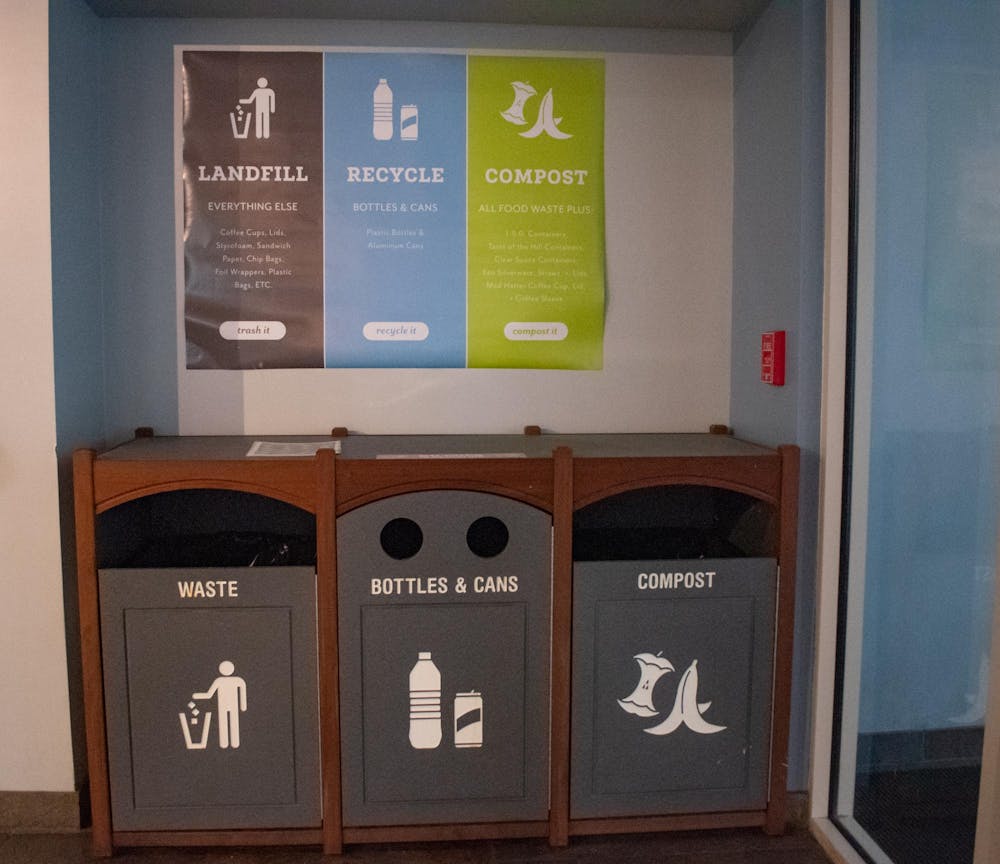At first glance, composting may seem tricky on a college campus.
But, students at UNC can dispose of their scraps in a variety of ways, including turning them into something meaningful at the University.
“It's great stuff," Claire Lorch, Carolina Community Garden’s program manager, said. "We call it — the finished compost — we call it black gold."
The community garden, which is located on Wilson Street off of West Cameron Avenue, accepts and composts food scraps collected by community members. According to the garden's website, these scraps can include fruits and vegetables, breads and grains, egg shells, coffee grounds and other natural items.
The "black gold" is then used to fertilize the garden, and the produce is given to on-campus employees who tend to make lower wages, almost every week.
"We just recently had our 14th birthday, and we've given away over 32 tons of food," Lorch said. "We attribute a lot of our success to compost — the beautiful compost."
The residence halls also have sustainability officers who organize events aiming to promote greener living on campus. One of these events included a composting day, in which students on different floors competed to collect the most compost.
Carolina Dining Services has compost collection centers across campus, including central locations such as Chase and Lenoir Dining Halls and Alpine Bagel Cafe.
Some days, students who act as CDS Green Guides are stationed near composting bins to help ensure compost is properly sorted.




